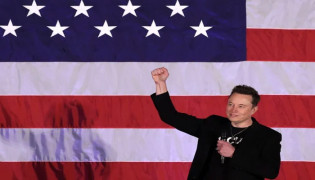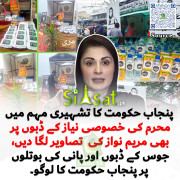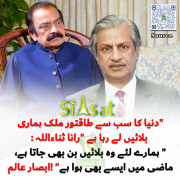Kamran Stu
MPA (400+ posts)
We Should start Export more as compare to import less! This is the time for our nation should come forward & help IK & Govt to curb the issue of Economy because it's mutual responsibility of Nation/Leadership.
Exports are the back bone of any economy. Where domestic consumption is low, the primary mode of enhancing the growth rate of a country is through its exports. Exports help earn valuable foreign exchange, which is quite important for a country like Pakistan, which has to pay its oil and defense purchase bills through foreign exchange. Decreasing exports would mean an unfavourable balance of payments which would put pressure on the exchange rate causing the rupee to depreciate which would increase again the bill of imports creating a vicious cycle from which a country has to protect itself.
Notable Export of Pakistan includes :
While the imports include’s :
What to know about the Pakistan-IMF deal
Saad Hasan

Islamabad has once again been forced to approach the lender but the loan is a stopgap measure and Prime Minister Imran Khan’s government has to take difficult steps to resurrect the economy.
After months of back and forth talks, Pakistan has finally secured a badly needed $6 billion ‘bailout’ loan from the International Monetary Fund (IMF).
While exact details of the deal haven’t been spelt out, the lender wants Islamabad to confront longstanding issues like low tax revenue collection and power sector reforms.
The government of Prime Minister Imran Khan, who took office last August, has been criticised for dilly-dallying on IMF’s help for months in hopes that preferential loans and aid from allies can avert a balance of payment crisis. That didn’t work.
Pakistan’s economy has slowed, prices of fruits and vegetables have shot up and exporters in the key textile sector have struggled.
In sweeping changes to his cabinet last month, Khan removed finance minister Asad Umar, a close aide, and replaced him with a technocrat Abdul Hafeez Shaikh.
This is the 13th time since the 1980s that Pakistan has entered an IMF programme, which will run a course of three years.
Shaikh says Pakistan needs to come up with $12 billion this year to bridge the gap between its foreign currency holdings and what is required to pay for loans and imports.
Source
Exports are the back bone of any economy. Where domestic consumption is low, the primary mode of enhancing the growth rate of a country is through its exports. Exports help earn valuable foreign exchange, which is quite important for a country like Pakistan, which has to pay its oil and defense purchase bills through foreign exchange. Decreasing exports would mean an unfavourable balance of payments which would put pressure on the exchange rate causing the rupee to depreciate which would increase again the bill of imports creating a vicious cycle from which a country has to protect itself.
Notable Export of Pakistan includes :
- Rice
- Mangoes
- Surgical
- Engineering Goods
- Live-stock Meat.
- Sports goods.
While the imports include’s :
- Vehicles
- Mineral Fuels (also includes oils)
- Iron /Steel
- Plastics
- Organic Chemicals.
What to know about the Pakistan-IMF deal
Saad Hasan

Islamabad has once again been forced to approach the lender but the loan is a stopgap measure and Prime Minister Imran Khan’s government has to take difficult steps to resurrect the economy.
After months of back and forth talks, Pakistan has finally secured a badly needed $6 billion ‘bailout’ loan from the International Monetary Fund (IMF).
While exact details of the deal haven’t been spelt out, the lender wants Islamabad to confront longstanding issues like low tax revenue collection and power sector reforms.
The government of Prime Minister Imran Khan, who took office last August, has been criticised for dilly-dallying on IMF’s help for months in hopes that preferential loans and aid from allies can avert a balance of payment crisis. That didn’t work.
Pakistan’s economy has slowed, prices of fruits and vegetables have shot up and exporters in the key textile sector have struggled.
In sweeping changes to his cabinet last month, Khan removed finance minister Asad Umar, a close aide, and replaced him with a technocrat Abdul Hafeez Shaikh.
This is the 13th time since the 1980s that Pakistan has entered an IMF programme, which will run a course of three years.
Shaikh says Pakistan needs to come up with $12 billion this year to bridge the gap between its foreign currency holdings and what is required to pay for loans and imports.
Source
- Featured Thumbs
- http://sachtimes.com/en/wp-content/uploads/2019/05/imf-pak.jpg
Last edited by a moderator:


































